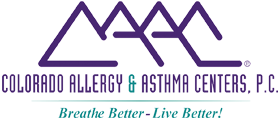Atopic dermatitis—commonly known as eczema—is a chronic skin condition that causes dry, itchy, and inflamed skin. It often begins in childhood, as early as a few months of age, but can affect people of all ages. While it’s not contagious, eczema can be uncomfortable and sometimes impact quality of life.
What Causes Atopic Dermatitis?
Atopic dermatitis is caused by a combination of genetic and environmental factors. It’s linked to an overactive immune system that responds strongly to irritants, allergens, and even stress.
Common triggers that may worsen eczema include:
- Dry air or cold weather
- Harsh soaps, detergents, or water
- Allergens like pet dander, pollen, or dust mites
- Certain fabrics like wool or synthetic fibers
- Stress and lack of sleep
- Illnesses
Symptoms of Atopic Dermatitis
Symptoms of eczema can vary depending on the age of the person and the severity of the condition.
Typical Symptoms:
- Dry, scaly skin
- Red or brown patches
- Intense itchy skin, especially at night
- Thickened, cracked, or swollen skin
- Small bumps that may ooze or crust over when scratched
In infants, eczema often appears on the face and scalp. In older children and adults, it commonly affects the hands, elbows, knees, and neck.
Who Is at Risk?
Anyone can develop eczema, but certain factors increase your risk.
Risk Factors Include:
- Family history of eczema, asthma, or allergies
- Living in a dry or cold climate
- Having food or environmental allergies
- Being diagnosed with asthma or hay fever
- Being born female (women are slightly more likely to develop eczema)
How Is Atopic Dermatitis Treated?
While there’s no cure for eczema, there are many ways to manage symptoms and reduce flare-ups.
Common Treatment Options:
- Moisturizers: Apply thick, fragrance-free creams at least twice a day.
- Topical corticosteroids: Help reduce inflammation during flare-ups.
- Antihistamines: May ease itching and help with sleep.
- Prescription medications: In more severe cases, doctors may prescribe oral medications or newer biologic therapies.
- Phototherapy: Controlled exposure to ultraviolet light can help some patients.
- Allergy testing: Identifying and avoiding allergens may reduce flare-ups.
Tips for Managing Eczema
- Use gentle, fragrance-free soaps and detergents (preferable non-liquid)
- Wear breathable, soft fabrics like cotton
- Take short, lukewarm showers instead of hot ones
- Keep your home’s humidity at a comfortable level
- Stay hydrated and avoid scratching
Need Help Managing Eczema in Colorado?
At Colorado Allergy & Asthma, we offer expert care for eczema and related skin conditions. Our team can help identify triggers and develop a personalized treatment plan. Book an appointment with us today.
Category: Uncategorized


